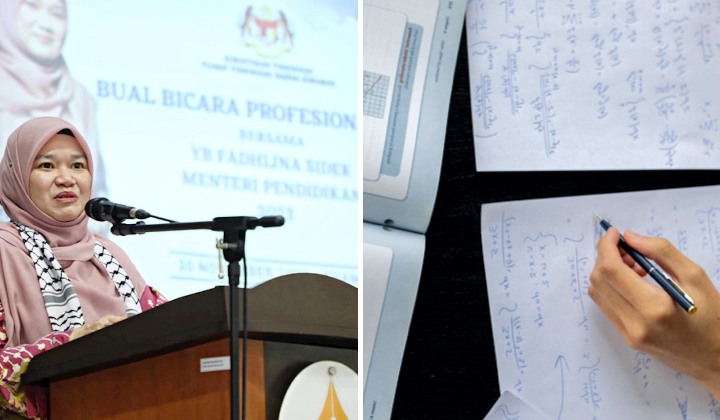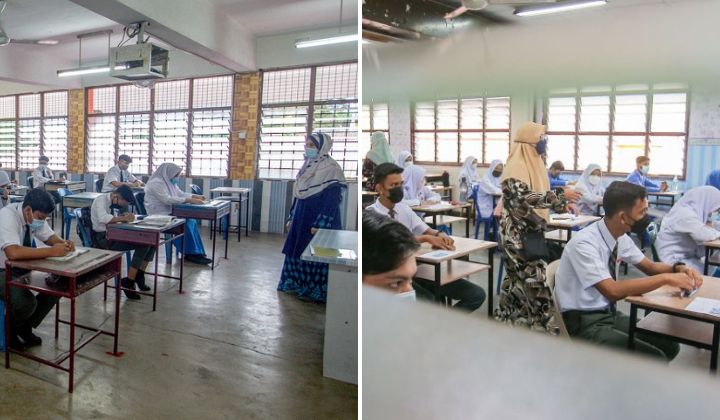77% Of SPM Candidates Fail Or Receive Grade E In 2022 Results
14,858 students who registered for SPM did not appear for the exam.

Subscribe to our Telegram channel or follow us on the Lumi News app for the latest stories and updates.
The SPM results for 2022 revealed that 77% of candidates either failed or received a Grade E.
Of the 373,974 candidates who sat for the exam, only 10,109 received straight As, 2.7% of the total candidates.
The high percentage of candidates who received a Grade E or failed has raised concerns about the education system in Malaysia.

Many call on the Ministry of Education to be more transparent about the minimum passing marks for all SPM subjects and the mark percentage required to qualify for an A+ or an A.
Tak kan lah selama ni orang tak tahu. Pemarkahan SPM tu rahsia dan tiada ‘spesifik’ skala gred pun dalam mana2 SPM. Sebab skala gred tu akan bergantung kepada markah student tu sendiri. Skala SPM untuk setiap subjek tak akan sama. https://t.co/iMDOQprn4B
— FiAz 🌈 (@HafiszahHusin) June 12, 2021
Calls For Transparency From The Ministry Of Education
Critics argue that having many citizens with higher intellectual and academic training is crucial for developing the economy and society.
The results also highlight the need for more examinations to monitor future citizens’ progress in their academic training.
The abolishment of UPSR and PMR exams has also come under scrutiny, with many suggesting that more public examinations are needed to gauge how students progress throughout their academic journey.
The Ministry of Education has yet to respond to these concerns, but many are calling for immediate action to address the issues raised by the 2022 SPM results.
bring back upsr pt3 sial biar takut sikit bebudak ni https://t.co/oTTVlmU21Y
— ؘ (@ar1fer) June 10, 2023
High Number Of Students Failing In Bahasa Malaysia And Sejarah
While there were reportedly 10,000 students who received straight A’s, there were also 70,000 who failed in Bahasa Malaysia or Sejarah, and possibly both.
Despite efforts to improve the curriculum and support students, many still struggle with basic reading and spelling skills, making it difficult for them to succeed in these subjects.
This issue has been a concern for many educators and parents, as it can have long-term consequences for students’ academic and professional prospects.
One possible solution that has been suggested is to simplify the curriculum and focus on core skills such as reading, spelling, and arithmetic in the early years of primary school.
This approach could help ensure students have a strong foundation in these essential skills before moving on to more complex subjects.
Addressing The Root Causes: Economic, Social, And Linguistic Factors
However, it’s important to note that other factors may contribute to these subjects’ high failure rates.
For example, economic and social factors may affect students’ ability to succeed in school.
Additionally, cultural or linguistic barriers may make it difficult for some students to grasp the material.
Despite these challenges, many educators and policymakers are working to find solutions to improve the education system in Malaysia and ensure that all students have the opportunity to succeed.
This includes efforts to provide more support for struggling students, improve teacher training, and develop new approaches to teaching and learning.
Kadang tak sambung belajar ada byk faktor, bukannya sebab gagal SPM
— bestrongforyourself (@iezasevda) April 20, 2023
Ramai je yg celik ilmu cuma takde sebuah scroll dan ianya bukanlah pengukur kebijaksanaan seseorang https://t.co/aETCTpl7MF
Share your thoughts with us via TRP’s Facebook, Twitter, and Instagram.





